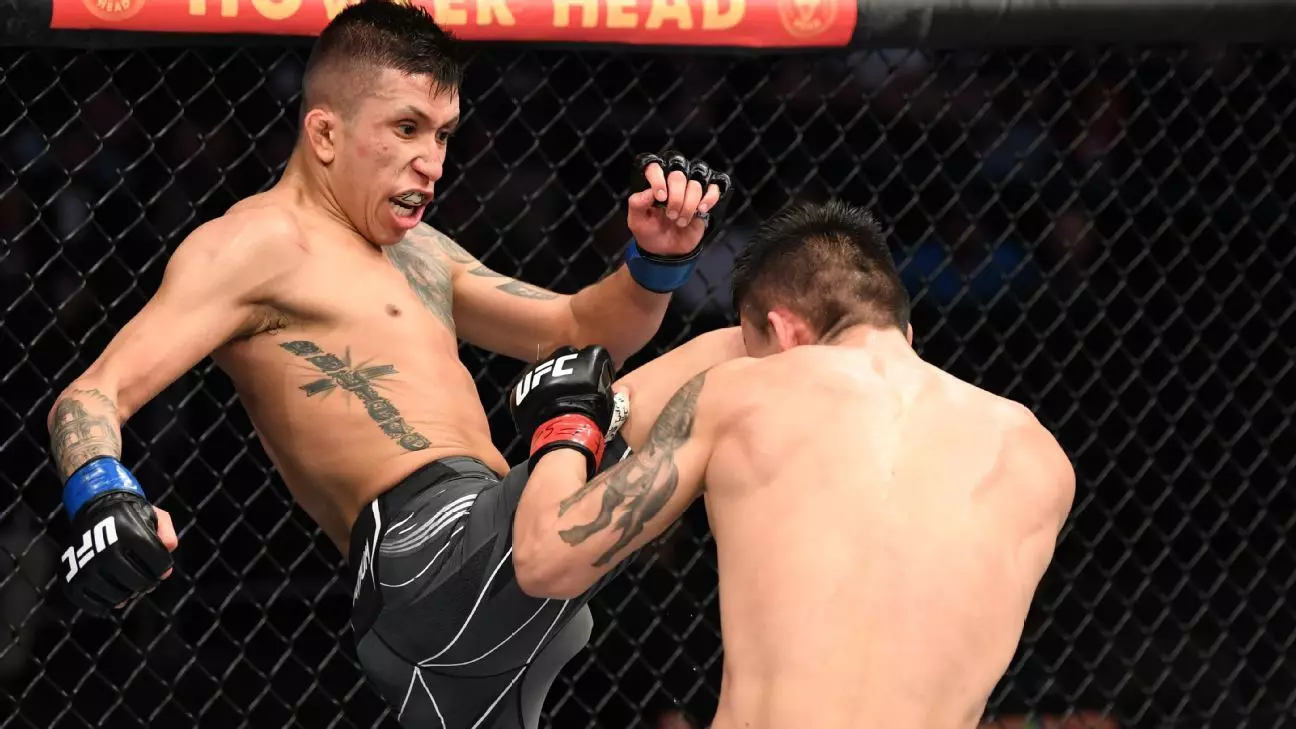The world of Mixed Martial Arts (MMA) is often glorified for its unpredictability, athleticism, and excitement. Yet, beneath the surface lies a murky underbelly rife with ethical dilemmas and the potential for corruption. The recent case involving fighter Jeff Molina emphasizes an unsettling truth: when personal stakes intertwine with insider knowledge, the sanctity of the sport can be compromised. Molina’s actions—betting heavily on a UFC fight based on confidential injury information—serve as a grim reminder of the challenges facing combat sports regulation, and the lengths individuals might go to for financial gain.
Insider Knowledge: A Dangerous Weapon
Molina’s case begins with a fight on November 6, 2022, between Darrick Minner and Shayilan Nuerdanbieke, a match that quickly became the focal point of an investigation due to suspicious betting patterns. Bets against Minner and on the bout ending quickly spiked as insiders began to realize that something was amiss. Molina, who arguably had a front-row seat to knowledge that should have remained confidential, took advantage of this information. His decision to place “significant bets” based on an undisclosed injury of Minner raises considerable ethical questions about the integrity of not just the fighters, but the entire sport.
MMA is populated by fighters with rigorous training regimens and demanding schedules, and the outcome of any fight is often unpredictable. However, Molina’s actions contradict the ethos that champions valuing fair play and sportsmanship. In a sport where reputation matters immensely, using inside information not only tarnishes personal legacies but risks the credibility of the entire competition.
The Broader Implications for MMA
One cannot overlook the broader ramifications of such misconduct. The Nevada Athletic Commission (NAC), tasked with maintaining fairness in combat sports, has struggled to navigate the complexities of gambling, especially as MMA’s popularity surged. The initial response to Molina’s actions—his suspension and subsequent admission of guilt—was a step in the right direction, yet it can be seen as merely scratching the surface of the issue.
Further complicating matters is the involvement of trainers and possibly an entire network operating beneath the surface. James Krause, Minner’s trainer at the time, saw a suspension of his own, further complicating the case. Krause’s own alleged involvement with offshore bookmaking operations and open betting practices not only questions his ethics but also broadens the scope of potential corruption at play within the sport. As fighters, trainers, and officials navigate this tumultuous landscape, each decision carries the weight of accountability.
The Role of Transparency and Regulation
In light of these events, there arises an urgent need for increased transparency in MMA. Regulatory bodies must take proactive measures to ensure that rules are not just in place but diligently enforced. A unified approach among all states governing fights could bolster efforts to create an environment that discourages such behavior. This necessitates rigorous background checks for trainers and fighters alike, alongside stringent monitoring of betting activity to curtail any insider dealings.
The UFC’s initial response, which included releasing Minner and instructing fighters to sever ties with Krause, reflects an understanding of the potential damage to credibility. However, mere punitive actions are not enough; systemic changes must be sought to reinforce ethical boundaries.
Rethinking the Culture of MMA
Ultimately, the case of Jeff Molina represents a pivotal moment that should provoke introspection within the MMA community. The culture surrounding fight promotions must shift from one that tolerates questionable practices to an environment that emphasizes integrity and fairness. Fighters should be reminded that their legacies depend not only on their skill inside the cage but also on their adherence to the principles of fair competition.
As the sport continues to evolve and attract more fans and investors, it is essential to ensure that the thrilling dynamics of MMA do not become overshadowed by scandals. Molina’s case should serve as a critical wake-up call, urging stakeholders at all levels to prioritize the ethical dimensions of their craft and ward off the potential pitfalls of greed that can undermine the very essence of sport.


Leave a Reply